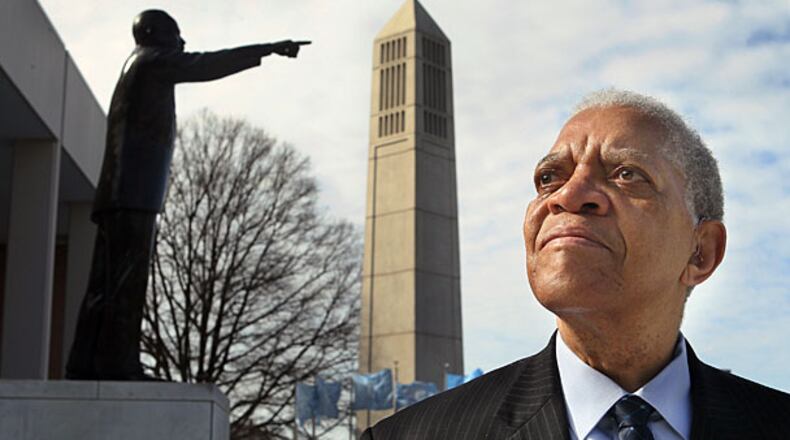Samuel DuBois Cook became Dillard University’s fourth president in 1974. Under his leadership Dillard’s curriculum was strengthened and expanded and the number and percentage of faculty members holding doctoral degrees increased. He raised the requirements for admission, increased student enrollment by 50 percent, raised significant funds to improve the campus and facilities, and expanded student services. In 1989, Cook created the Dillard University National Conference on Black-Jewish Relations. He added the Japanese studies program in 1990.
I was mentored by Dr. Benjamin E. Mays while I was a student at Morehouse College.
At Dillard University, I tried to improve the academic progress and commitment to life of the mind, reverence for learning and a sense of wonder.
Dillard cared deeply about our students, their abilities and promise.
Meager financial resources had been a severely limiting factor, but it did not prevent striking contributions and achievements of students.
Dillard was a source of empowerment and leadership in various forms and dimensions. It produced outstanding role models and a catalyst for historical change.
Dillard tried to improve the academic vision and progress of students by creating cultural exposure and introducing students to a Japanese exchange program and a Black-Jewish Center.
Students were exposed to national scholars in an academic atmosphere through dialogue, differing respectively with civility and without rancor, but with understanding.
A college or university should be open enough for ideas to be explored and ultimately find solutions that might have far reaching effects.
During my tenure, Dillard had the rare experience of having President Gerald Ford come lecture and teach a class.
Dillard provided an outreach program for youth who were bound for incarceration by trying to provide hope and guidance by reaching out to them and others.
I believe that education must be committed to improving the quality of life for all members of society and especially the neediest, the vulnerable, the weak, the disinherited, the poor, the exploited, the downtrodden, the victims of injustice, discrimination and dehumanization.
Education should make us more sensitive to the needs, hurts, wounds, injustices and anguished cries of our neighbors and fellow human beings.
Keep Reading
The Latest
Featured
